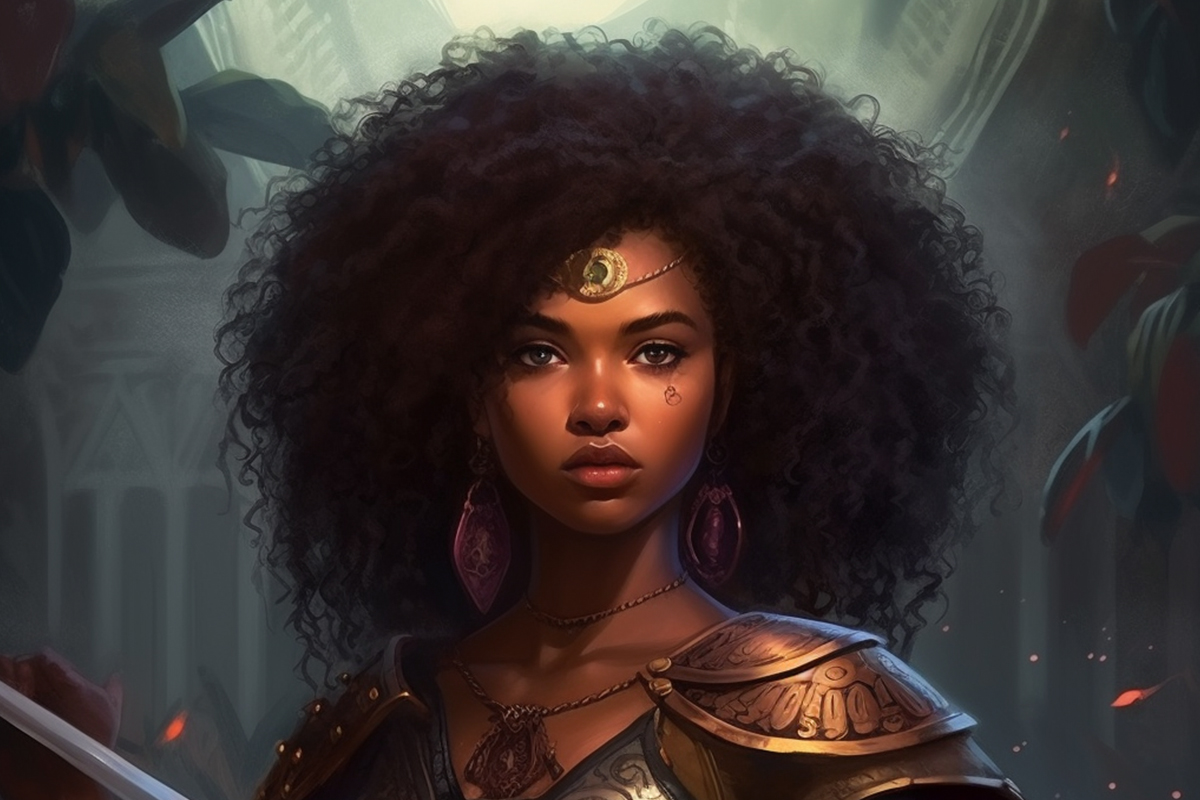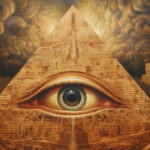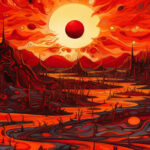Afrofuturism is a genre that combines elements of science fiction, fantasy, and African culture. It is a movement that has gained popularity in recent years – and for good reason. The genre examines the intersection of African culture and technology, presenting a vision of a future that is both futuristic and rooted in African traditions. In this article, we will delve into the world of Afrofuturism and explore the very best Afrofuturism books that you should add to your reading list and start enjoying.

Understanding Afrofuturism
Afrofuturism is a term that was coined by Mark Dery in his 1994 essay “Black to the Future.” The term refers to a cultural movement that explores the intersection of African diaspora culture with science fiction, fantasy, and speculative fiction. The movement has roots in the black arts movement of the 1960s and 1970s, and it has been used to describe everything from literature and music to visual art and film.
The Origins of Afrofuturism
Afrofuturism has its roots in the work of writers and thinkers like Octavia Butler, Samuel R. Delany, and Sun Ra. These pioneers of the genre paved the way for a new generation of Afrofuturists, who have brought a fresh perspective to the movement in recent years.
Octavia Butler, for example, is known for her groundbreaking science fiction novels that explore themes of race, gender, and identity. Her work paved the way for other black science fiction writers, and she remains an important figure in the Afrofuturist movement.
Samuel R. Delany, on the other hand, is known for his complex and challenging science fiction novels that deal with issues of race, sexuality, and identity. His work has been praised for its innovative approach to science fiction, and he is considered one of the most important writers in the genre.
Sun Ra, a jazz musician and composer, was also an important figure in the Afrofuturist movement. His music was heavily influenced by science fiction, and he often incorporated futuristic themes and imagery into his performances.
Key Themes and Concepts in Afrofuturism
At its core, Afrofuturism is concerned with exploring the relationship between African diaspora cultures and technology. The genre often deals with themes of identity, otherness, and the role of technology in society. Many Afrofuturist works also explore the impact of colonialism and racism on Black communities and the ways in which technology can be used to empower marginalized groups.
One of the key themes in Afrofuturism is the idea of “otherness.” Many Afrofuturist works explore what it means to be “othered” in society, and how this experience can shape one’s identity. For example, in N.K. Jemisin’s novel “The Fifth Season,” the protagonist is a member of a group of people with special abilities who are feared and persecuted by the rest of society. The novel explores how this experience shapes the protagonist’s identity and worldview.
Another important theme in Afrofuturism is the role of technology in society. Many Afrofuturist works explore the ways in which technology can be used to empower marginalized groups and challenge existing power structures. For example, in Nnedi Okorafor’s novel “Who Fears Death,” the protagonist uses her magical abilities to overthrow a tyrannical government and bring about social change.
Finally, many Afrofuturist works explore the impact of colonialism and racism on Black communities. These works often imagine alternative futures in which Black people are no longer oppressed and marginalized. For example, in the film “Black Panther,” the fictional nation of Wakanda is a technologically advanced society that has never been colonized or enslaved. The film imagines a future in which Black people are not only equal to, but superior to, their oppressors.
The Pioneers of Afrofuturism Literature
Afrofuturism is a genre of science fiction that combines elements of African culture and history with futuristic themes. It imagines a world where Black people are at the forefront of technological advancements and have a strong presence in the future. The movement has gained momentum in recent years, but it has been around for decades, thanks to the pioneering work of writers like Octavia Butler, Samuel R. Delany, and Nalo Hopkinson.
Octavia Butler
No conversation about Afrofuturism would be complete without mentioning Octavia Butler. Butler was a trailblazer in the science fiction genre and her work often dealt with themes of race, gender, and identity. Her novel, “Kindred,” is a time-travel story that explores the link between slavery and contemporary Black identity. The protagonist, Dana, is a modern-day Black woman who is transported back in time to the antebellum South. Through her experiences, Butler examines the legacy of slavery and its impact on the present day.
Butler was a master of blending science fiction and social commentary, and her work has had a profound impact on the Afrofuturist movement. Her novel “Parable of the Sower” imagines a future where society has collapsed due to climate change and political instability. The protagonist, Lauren Olamina, creates a new religion called Earthseed, which emphasizes the importance of community and cooperation.
Butler’s work has been praised for its nuanced exploration of race and gender, and her influence can be seen in the work of contemporary Afrofuturist writers like N.K. Jemisin and Nnedi Okorafor.
Samuel R. Delany
Samuel R. Delany is another pioneer of the Afrofuturism genre. His novel, “Dhalgren,” is a post-apocalyptic story set in a city that is suffering from the aftermath of a disaster. The novel deals with themes of identity and otherness, and it has been praised for its inventive use of language and experimental narrative structure.
Delany’s work often explores themes of sexuality and desire, and he has been an important voice in the LGBTQ+ community. His novel “Babel-17” imagines a future where language is a powerful tool for communication and control. The protagonist, Rydra Wong, is a poet and linguist who must decipher a mysterious language that is being used to manipulate people’s thoughts and emotions.
Delany’s work has been influential in the science fiction community, and he has won numerous awards for his contributions to the genre.
Nalo Hopkinson
Nalo Hopkinson is a Jamaican-Canadian writer who has made major contributions to the Afrofuturist movement. Her novel, “Brown Girl in the Ring,” is a post-apocalyptic story set in a future Toronto that has been abandoned by the government. The novel explores themes of race, class, and the impact of technology on society, and it has been praised for its innovative use of Caribbean folklore.
Hopkinson’s work often incorporates elements of magic and mythology, and she has been a strong advocate for diversity in science fiction. Her novel “Midnight Robber” imagines a future where a young girl named Tan-Tan must navigate a world of political intrigue and cultural clashes.
Hopkinson’s work has been recognized with numerous awards, including the John W. Campbell Award for Best New Writer and the World Fantasy Award.
These three writers are just a few of the many pioneers of the Afrofuturist movement. Their work has paved the way for a new generation of writers who are using science fiction to explore themes of race, identity, and social justice. As the genre continues to evolve, it is clear that the legacy of these writers will continue to inspire and influence future generations.
Top 10 Afrofuturism Books to Read
“Binti” by Nnedi Okorafor
“Binti” is a novella that tells the story of a young woman from a Himba community on Earth who is accepted into a prestigious intergalactic university. The novella explores themes of identity, otherness, and the impact of colonization.
“The City We Became” by N.K. Jemisin
“The City We Became” is a novel that imagines a world in which cities are alive and conscious. The novel explores themes of identity and community, and it has been praised for its inventive use of urban mythology.
“Parable of the Sower” by Octavia Butler
“Parable of the Sower” is a dystopian novel set in a future California that is suffering from extreme climate change and political unrest. The novel explores themes of survival, community, and the relationship between religion and social change.
“The Water Dancer” by Ta-Nehisi Coates
“The Water Dancer” is a novel that follows the journey of a young enslaved man who discovers he has a superhuman ability to transport himself through space and time. The novel explores themes of memory, trauma, and the legacy of slavery.
“The Fifth Season” by N.K. Jemisin
“The Fifth Season” is a novel that takes place in a world that is plagued by frequent apocalyptic events. The novel explores themes of power, oppression, and the relationship between humans and the environment.
“The Afrofuturism Anthology” edited by Isiah Lavender III
“The Afrofuturism Anthology” is a collection of stories, poems, and essays that explore the many facets of Afrofuturism. The anthology features works from a variety of writers, including Nalo Hopkinson, Samuel R. Delany, and Octavia Butler.
“Riot Baby” by Tochi Onyebuchi
“Riot Baby” is a novel that follows the lives of two siblings with incredible powers. The novel explores themes of police brutality, systemic racism, and the legacy of violence in Black communities.
“Who Fears Death” by Nnedi Okorafor
“Who Fears Death” is a novel set in a future Sudan that is plagued by war and genocide. The novel follows the journey of a young woman with magical abilities who is destined to overthrow a brutal dictator.
“Black Leopard, Red Wolf” by Marlon James
“Black Leopard, Red Wolf” is a novel that takes place in a fantastical world inspired by African mythology. The novel follows the journey of a mercenary who is hired to track down a missing boy, and it explores themes of identity, trauma, and the complex relationships between humans and animals.
“The Space Between Worlds” by Micaiah Johnson
“The Space Between Worlds” is a novel that takes place in a multiverse where people can travel between different parallel universes. The novel follows the journey of a woman who is tasked with collecting data from other worlds, and it explores themes of identity, trauma, and the impact of colonialism on different cultures.
In conclusion, Afrofuturism is a rich and vibrant genre that offers a fresh perspective on the relationship between technology and African diaspora culture. Whether you are a fan of science fiction or just looking for something new to read, these 10 Afrofuturism books should definitely be on your radar. So go ahead and discover the worlds of the future through the lens of Afrofuturism.
FAQs
What does Afrofuturism mean?
This term describes novels, as well as pieces of music and art, that incorporate science fiction and futuristic themes with elements drawn from black culture and history.
Is Afrofuturism fiction speculative fiction?
Is Afrofuturism fiction speculative fiction?
Much like the horror, fantasy, and science fiction genres, Afrofuturism is a form of speculative fiction that explores abstract possibilities and asks questions about current cultural norms.
Who writes the best Afrofuturism novels?
There are several brilliant authors who write for the Afrofuturism genre, including W.E.B. Du Bois, Nisi Shawl, and Octavia E. Butler. Dawn by Octavia E. Butler is considered to be one of the best pieces of Afrofuturism fiction.
- The 11 Best Books About Cats You Should Read - January 16, 2024
- The 9 Best Books on Building Confidence - January 16, 2024
- Discover the 10 Best Books on the Brain - January 16, 2024


